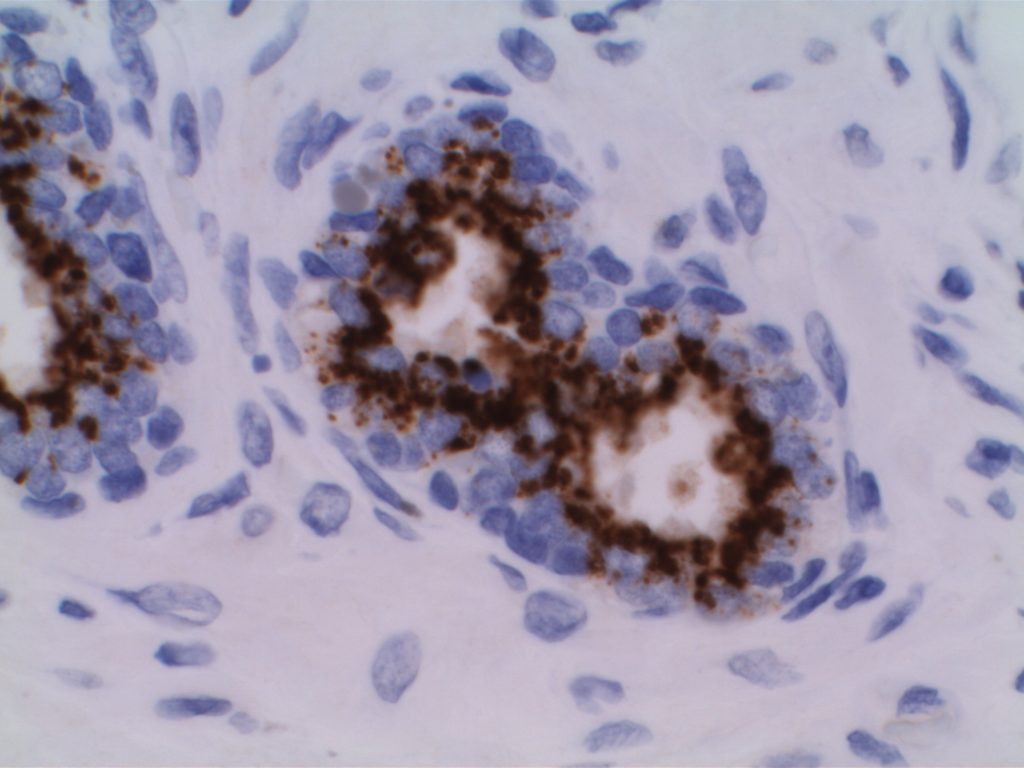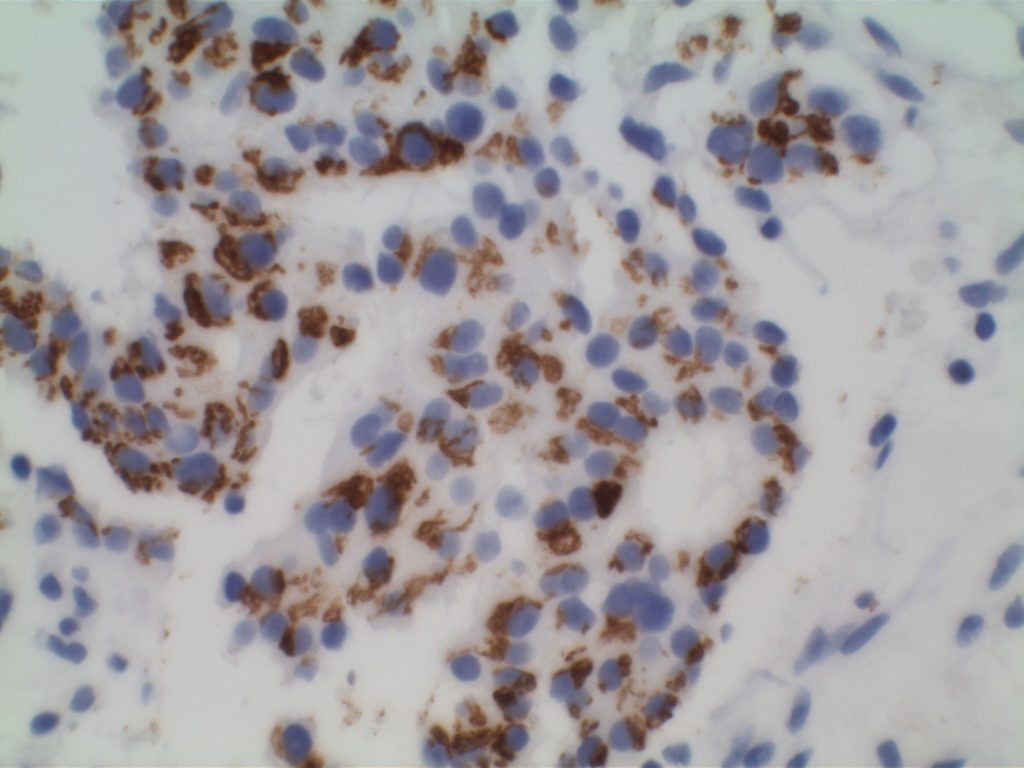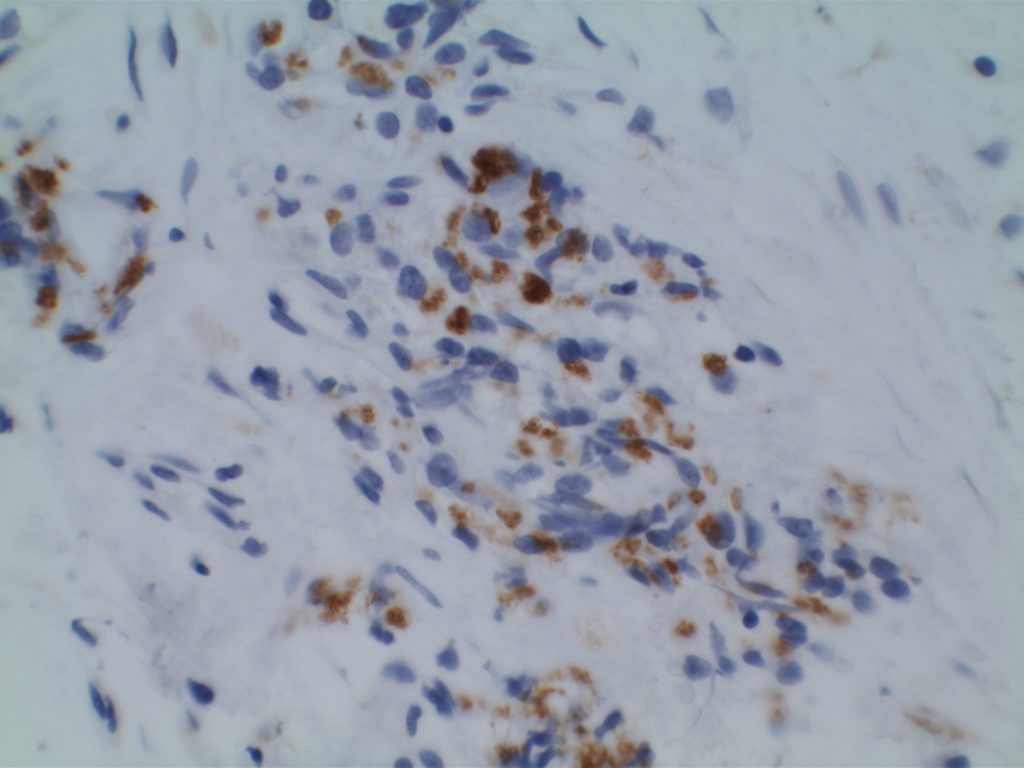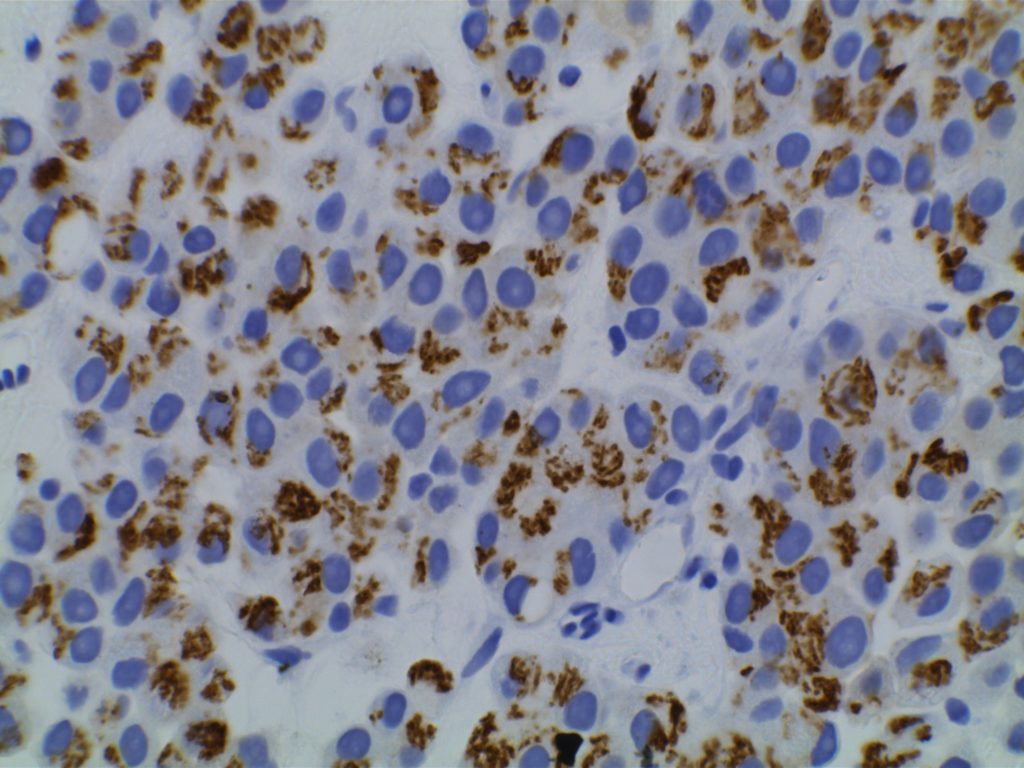p501s is an antibody used to detect the expression of prostein, which is highly sensitive and specific for prostate gland epithelium. Kilos, et. al. described an 87% sensitivity (N=53) of the 10E3-G4-D3 antibody clone for prostate tumors, and negativity in 4,635 non-prostate normal and malignant tissues throughout an extensive diversity of tissue and tumor types. Detection of expression of prostein appears to be independent of Gleason score. This is important because PSA and PSAP have struggled to have sensitivity over 50% in high Gleason score prostate carcinomas, which can be diagnostically challenging.
Expression is cytoplasmic and restricted to the Golgi complex, which yields a peri-nuclear dot-like positivity. Overall, this antibody (along with several other recent markers) shows great promise in effectively replacing the historic standbys of PSA and PSAP, which suffer from decreased sensitivity with increasing Gleason score.
Table 1. Expression of p501s (protein) in prostate and urothelial carcinomas from various studies
|
Study
|
Prostate
Adenocarcinoma
|
Urothelial
Carcinoma
|
|
Kalos, M, et. al.
|
87% + (N=53)
|
0% + (N=81)
|
|
Mohanty, SK, et. al.
|
100% + (N=20)
|
0% + (N=16)
|
|
Srinivasan, M, et. al.
|
96% + (N=23)
|
0% + (N=132)
|
Microscopic Images




References
Srinivasan M, Parwani AV. Diagnostic utility of p63/P501S double sequential immunohistochemical staining in differentiating urothelial carcinoma from prostate carcinoma. Diagnostic pathology. 2011;6:67. doi:10.1186/1746-1596-6-67.
Mohanty SK, Smith SC, Chang E, et al. Evaluation of contemporary prostate and urothelial lineage biomarkers in a consecutive cohort of poorly differentiated bladder neck carcinomas. Am J Clin Pathol. 2014;142(2):173–183. doi:10.1309/AJCPK1OV6IMNPFGL.
Kalos M, Askaa J, Hylander BL, et al. Prostein expression is highly restricted to normal and malignant prostate tissues. Prostate. 2004;60(3):246–256. doi:10.1002/pros.20043.
